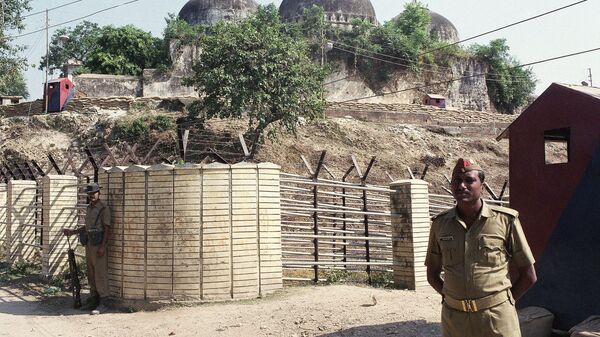India’s federal government on Wednesday announced that it would create a group responsible for building a temple dedicated to Lord Rama, as mandated by the Supreme Court of India. The deity is hugely revered by the nation's Hindus.
“As per the orders of the Supreme Court, we have readied a scheme for the development of a Rama Temple in Ayodhya. A trust named 'Sri Ram Janambhoomi Tirath Kshetra' has been formed,” Prime Minister Narendra Modi said in parliament on Wednesday; his words were met with loud cheers and table-thumping in agreement.
Hindus had claimed a plot of land as the birthplace of Lord Rama, which had been the site of a mosque built by a Mughal king until it was torn down by religious fanatics in 1992.
After the verdict on the Ram Janmabhoomi issue came out, the people of India displayed remarkable faith in democratic processes and procedures. I salute the 130 crore people of India: PM @narendramodi
— PMO India (@PMOIndia) February 5, 2020
Modi also announced that the government of Uttar Pradesh has given approval to allot a 5-acre plot of land to a Muslim body, the Sunni Waqf Board, for the construction of a replacement mosque, in accordance with the ruling of India’s highest court. He added that the trust would be an independent body tasked with decisions concerning the construction of the temple in Ayodhya.
“We have taken another big step for Rama temple pilgrims. The government is allocating over 67 hectares of land, including a courtyard and the insides of the temple area, to the trust… We want people from all religions and communities in India to thrive,” Modi added.
“In India, whether Hindu, Muslim, Sikh, Christian, Buddhist, Parsi or Jain, everyone is a part of one family. Development must take place for every member of the family,” Modi added.
The ruling by the top court of the country settled a long, drawn-out judicial battle, which was considered to be the most vexed and sensitive since the nation's Independence.
The case, which has triggered the religious sentiments of both Hindus and Muslims, flared up following the 1992 demolition of a Muslim mosque, Babri Masjid, by Hindus, who claimed that the Mughal emperor Babar had built the house of worship after demolishing a Hindu temple. The contested site is located in Ayodhya, a city in the eastern Indian state of Uttar Pradesh.


